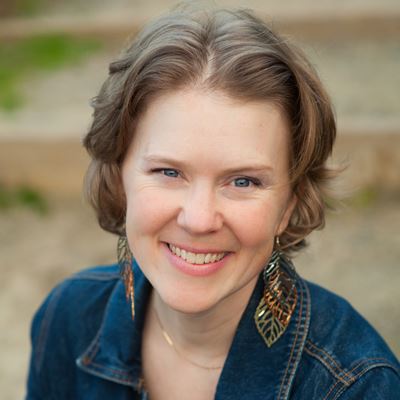
Six years ago, I decided to start practicing a Sabbath every week. My goals were both positive and questionable, including spending more time with God (lovely), and feeling a smug sense of spiritual accomplishment (hmmmm). Since my husband was supportive, but not ready to participate, I decided to keep the list of thou shalt nots from overburdening him: no to laundry and tidying, yes to cooking for my hungry kids. Yes to childcare (#realism), no to social media, internet usage, and my computer.
When the Sabbath arrived, I smiled to myself, and prepared for holy bliss. Instead, I felt like an addict experiencing withdrawal.
Six years ago, I decided to start practicing a Sabbath every week. My goals were both positive and questionable, including spending more time with God (lovely), and feeling a smug sense of spiritual accomplishment (hmmmm). Since my husband was supportive, but not ready to participate, I decided to keep the list of thou shalt nots from overburdening him: no to laundry and tidying, yes to cooking for my hungry kids. Yes to childcare (#realism), no to social media, internet usage, and my computer.
When the Sabbath arrived, I smiled to myself, and prepared for holy bliss. Instead, I felt like an addict experiencing withdrawal.
Sabbath uncovered my addictions.
My hands kept reaching for my phone, I noticed the mounting clutter of children’s toys with a twitching eyebrow, and I was bored—colossally, resentfully bored. I’d imagined wanting to pray a liturgy of the hours, reading my Bible peacefully, or simply feeling grateful. Instead, I gritted my teeth.
Even when the initial twitchiness got easier, the days did not feel magical. They were still a little boring. But little by little, I noticed a shocking change: I began to feel less anxious every day of the week.
I’m a doer, an accomplisher, a try-harder kind of person. But with Sabbath, I got a regular dose of un-doing. All my life, the list of things I should do have hounded me like mosquitos on a Houston summer night. For one day a week, I learned what life felt like without the word “should” buzzing around my head. That experience trickled down through the days that followed.
In his book Sabbath as Resistance, theologian Walter Bruggemann says this about Sabbath: “…those who participate in it break the anxiety cycle.” Starting an (imperfect) Sabbath was the beginning of living without anxiety controlling me.
I grew up assuming Sabbath was the habitat of Puritans, monks, and other spiritual giants, but my experience with it has convinced me that it is one of the most essential and no-brainer disciplines for an anxious Church. Keeping the Sabbath is an example set by God, and a command from Him to His people (Exodus 20:8-11, Hebrews 4:9-11). If you’ve ever worried you’re not doing enough for Jesus, if your life feels like a hamster wheel, an imperfect, graceful Sabbath might be the best way to experience what a truly easy yoke feels like.
Intentionally resting is a great spiritual discipline for the anxious Christian because:
Sabbath breaks the cycle of doing more.
In her book, An Altar in the World, Barbara Brown Taylor says of Sabbath, “Limiting my activity does not help me feel holy. Doing more feels holy.”
I agree. At least at my church, there are constant opportunities to pray more, serve more, lead more, read more, show up more, or contribute something for a bake sale. Anxiety tells me I’m safest if I do them all. No one can fault me if I show up, right? No one can say I didn’t try.
This is the way to madness. God’s creation runs on cycles of fullness (spring) and emptiness (winter). When they function well, our appetites for food and sleep keep us from having too much or too little of each. Nothing in the natural world tells us that “more” is better all the time.
Disciplines of abstinence, as theologian Dallas Willard labeled them in his book The Spirit of the Disciplines, are as necessary to our spiritual health as sleep is for our bodies. But at first, rest can feel like laziness, disengagement, or lack of commitment; other Christians might even judge us for saying no.
But as theologian Karl Barth says, “A being is free only when it can determine and limit its activity.” Saying no to rest is saying yes to slavery. We can let our anxiety about measuring up or what others think control us, or we can choose to rest on purpose.
In a culture of constant productivity, Sabbath is an incredibly powerful gift. It helps us remember that rest, saying no, and ceasing to work are natural, normal, and important parts of our freedom in Christ.

Sabbath reminds us we serve a God of rest.
AW Tozer said, “What comes into our minds when we think about God is the most important thing about us.” Deep down, I have often seen God as a rigid taskmaster, shaming me for falling short. Of course I anxiously try to catch up.
But Sabbath breaks down my assumptions. Christians often talk about the scandal of incarnation and the miracle of resurrection, but I think we should be equally surprised by a God who chose to rest. How did it work, exactly, for the Creator of All to take a day off?
Walter Brueggemann captures what this means about God perfectly. “The world [God creates] is an anxiety-free one of well-being because the creator is anxiety-free and publicly exhibits that freedom from anxiety...” (Emphasis added.)
Let’s pause for a minute and celebrate this remarkable idea: God is not anxious. Our Creator feels no twitchy need to double-check the garden, does not fret that the animal kingdom is not up to snuff. God creates, God calls creation good, and that is enough.
We can set down our anxiety on the Sabbath because God did it first.
Sabbath helps us learn this grace one day at a time. Rather than asking more of me, this practice literally asks for less. I have found no other discipline forces me to live out Christ’s promise of an easy yoke so practically.
The ease of God, so evident in Christ’s command to not worry about our lives, flows directly from the Sabbath, the oldest spiritual discipline in the Bible (Matthew 6:25-34).
Photo Credit: Unsplash
Sabbath demonstrates that our effort is not essential.
I never thought of anxiety as being self-focused until I began practicing Sabbath. Before my day-off experiment, my constant internal checklist of my worries felt necessary, like a flight crew’s pre-launch countdown. Underneath my idea that I trusted God, I thought I manned the rocket’s controls. Because of that, fretting actually felt like a virtue. After all, wouldn’t a good Christian do everything they could to avoid screwing up?
Taking a Sabbath—a day of no to-do list, no shoulds or musts —showed me how wrong I was. For a single day each week, I stopped working hard, and presto!—God deeply changed me. Why had I imagined, even unconsciously, that I had the power to change myself?
The deepest shift came in my work as a writer. Of all my initial Sabbath rules, the decision not to open my computer was the hardest. As a homeschooling mother of two, I did not have spare hours sitting in a closet. I thought I knew that less work meant less progress towards my goals.
And then, I took a day off. To my surprise, the weekly pause made me more creative, not less. I finally began believing that God fueled my work, not me. Before Sabbath, I was sure my effort was the biggest variable in my life. I could not have been more wrong.
So much of my anxiety is wrapped up in assuming that if I think, try, or do more, I can change reality. My worries are an endless scheme to adjust the world to my liking, to move the knob on my heart. A day off from scheming reminds me that my anxiety does not, as Jesus put it, “add a single hour to [my] life” (Matthew 6:27).
Sabbath is an invitation, not a burden.
When my church talks about tithing, it’s emphasized that a small commitment—a few dollars a month—can grow into a larger commitment with time, patience and practice. I think Sabbath works the same way.
Jesus invites us into disciplines, not to burden us or judge us, but to free us. We can start joyfully, choosing to bless ourselves with a Sabbath that invites us inside. We can start with the time we have available. If an entire day sounds like too much, we could choose an afternoon, or even one hour a week. Over time, that choice can grow into a larger discipline.
It’s also important to remember Christ’s words: Sabbath is made for us, not the other way around (Matthew 2:23-28). A Sabbath for a full-time caregiver might look different than a pastor’s Sabbath; those who work two jobs to survive might practice it differently than those with more time off. The important part is intentional, restful engagement, not the level of difficulty. Consider what burdens Jesus might call you to set down during your Sabbath. Remind yourself to start with rest, not “should.”
Trust that working harder to “do Sabbath correctly” is anxiety talking, not God. Remind yourself that transformation happens with God’s power, not your hard work. Begin with where you are, and wait for God to lead you deeper.
Ironically enough, I began my Sabbath practice as a way of proving to Jesus how anxious I was to please him. I’m delighted he took a hard pass on my anxiety and brought me peace instead.

Photo Credit: Getty Images







